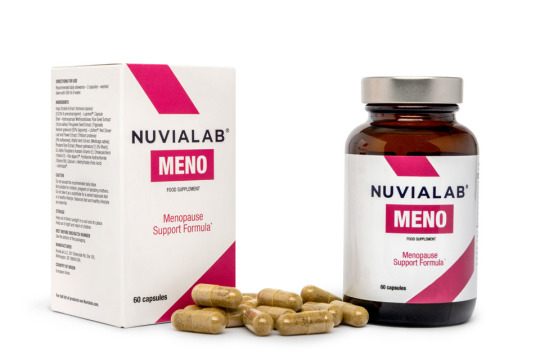#hormonal changes
Note
do you have any tips on hormonal pimples? or like teen pimples (idk what they r called) because i have so much of them but none of these toners and serums are helping.
Make sure to wash your face twice daily with a gentle cleanser. Avoid scrubbing your skin too hard, this can make acne worse.
Look for products that are labeled as "non-comedogenic," which means they won't clog your pores. This is especially important for makeup and moisturizers.
Products containing benzoyl peroxide or salicylic acid may be helpful in treating acne. Start with a lower strength and gradually increase if needed.
Prescription strength retinoids can be very effective in treating acne, but they can be irritating to the skin. Talk to your doctor and start with a lower strength and use as directed.
Here are some product recommendations:
Cleansers:
CeraVe Foaming Facial Cleanser
Neutrogena Oil-Free Acne Wash
Moisturizers:
Cetaphil Oil Control Moisturizer SPF 30
La Roche-Posay Effaclar Mat Mattifying Moisturizer
Salicylic Acid Products:
The Ordinary Salicylic Acid 2% Solution
Clean & Clear Advantage Acne Spot Treatment
Benzoyl Peroxide Products:
Neutrogena Rapid Clear Stubborn Acne Spot Gel
Acne.org 2.5% Benzoyl Peroxide Treatment
Non-Comedogenic Sunscreen:
Neutrogena Clear Face Liquid Lotion Sunscreen SPF 30
EltaMD UV Clear Broad-Spectrum SPF 46
Spot Treatments:
Mario Badescu Drying Lotion
Kate Somerville EradiKate Acne Treatment
The food you eat is super important for how your body's hormones work. Hormones are messengers that your body makes to control your growth, metabolism etc. They travel through your blood and tell different parts of your body what to do. Eating a good mix of healthy foods helps keep these hormones in check. Things like protein, good fats, fiber, vitamins, and minerals help make and control hormones. For example protein is needed for hormones like insulin and growth hormone, while healthy fats help with hormones like estrogen and testosterone.
Also, when you're stressed a lot, your body makes more of a hormone called cortisol, which can mess up other hormones. Moving your body through exercise can help with hormones by reducing stress and making you feel happy. Also, sleep is really important. Not getting enough sleep can mess up hormones that control hunger and fullness.
So, eating healthy foods, managing stress, staying active, and getting enough sleep are all really important. They help keep your hormones in balance and make sure your body works well.
Most importantly, don't let acne affect your self-esteem. You are beautiful just the way you are! Pimples are very normal and they do not take away from how amazing you are <3
#acne#hormones#hormonal balance#hormonal changes#self care#skincare#skincare treatment#glowing skin#beauty tips#beauty products#skincare tips#skincaretips#skin care
192 notes
·
View notes
Text
Been feeling so handsome, masculine and able to dress how I feel these last few days but now I'm sad cause various hormonal changes are happening and I think I know why, I just don't want it.

#jess speaks#jd speaks#irl stuff#lgbtq#lgbtq community#queer#lesbian#masc lesbian#lgbtqia+#normalize period talk#normalize talking about pms#hormonal changes
4 notes
·
View notes
Text
Every cycle feels... crying every day, lower body pain, thoughts of dying, rapid mood swings
3 notes
·
View notes
Text
I'm not even into pms, I'm probably ovulating, but it did not have to fuck up my brain/humor like that. just leave me alone, hormone changes 💀💀
#i’m ovulating#ovulation#hormonal changes#humor changes#confused thoughts#i feel like I'll go insane everytime
0 notes
Text

Il faut que j’arrête de m’exciter à chaque fois qui je vais sur X . Je deviens sauvage
0 notes
Text
My Skin is Getting Darker Without Being in the Sun?
Have you ever wondered why your skin seems to be getting darker even though you haven’t been spending much time in the sun? It’s a common concern and one that can leave you feeling puzzled and frustrated. After all, isn’t sun exposure the primary cause of changes in skin pigmentation? While sunlight certainly plays a significant role, other factors at play can lead to skin darkening even in the…

View On WordPress
#antioxidants#chemical peels#gentle exfoliants#hormonal changes#hormones#IPL photofacial#melanin#skin darkening#skin pigmentation#spf#sun#sunscreen
0 notes
Text
instagram
#registered dietitian#chronic migraine#nutrition coaching#nutritional#migraine relief#antiinflammatory foods#healthy foods#nutritional benefits#nutrition#shareable#please share#share#hormone balance#hormonal imbalance#hormonal#hormonalhealth#hormones#hormonal changes#pms is kicking my ass#fuck pms#follow my insta pls#Instagram
0 notes
Text
The Ultimate Guide to Menopause: Navigating Hormonal Changes with Confidence

I. Introduction to Menopause
1.1 Understanding Menopause: Definition and Stages
Menopause marks a significant transition in a woman's life, signaling the end of her reproductive years. Defined as the cessation of menstruation for 12 consecutive months, menopause typically occurs around the age of 51, although the timing can vary widely among individuals. It is preceded by a phase known as perimenopause, during which hormonal fluctuations and changes in menstrual patterns may occur.
1.2 The Importance of Hormones in Menopause Transition
Hormones play a crucial role in the menopause transition, particularly estrogen and progesterone. As women age, their ovaries produce less of these hormones, leading to the symptoms commonly associated with menopause. Estrogen, in particular, is responsible for regulating the menstrual cycle, maintaining bone density, and supporting vaginal and urinary tract health. The decline in estrogen levels during menopause can have far-reaching effects on a woman's physical and emotional well-being.
Here Orders The Product You Are Looking For
II. Signs and Symptoms of Menopause
2.1 Hot Flashes and Night Sweats: Managing Fluctuating Body Temperature
Hot flashes and night sweats are among the most recognizable symptoms of menopause, affecting up to 75% of women. These sudden sensations of heat can be accompanied by sweating, flushing, and palpitations, often disrupting sleep and daily activities. While the exact cause of hot flashes is not fully understood, hormonal changes, particularly fluctuations in estrogen levels, are believed to play a significant role.
2.2 Mood Swings and Emotional Changes: Coping Strategies for Mental Well-being
Menopause can also bring about changes in mood, including irritability, anxiety, and depression. Hormonal fluctuations, sleep disturbances, and life stressors can all contribute to these emotional changes. Coping strategies such as cognitive-behavioral therapy (CBT), mindfulness meditation, and regular exercise can help women manage their emotions and maintain psychological well-being during this transition.
2.3 Sleep Disturbances: Finding Restful Nights During Menopause
Sleep disturbances, including insomnia, waking up frequently during the night, and difficulty falling asleep, are common during menopause. Hormonal changes, night sweats, and stress can all interfere with sleep quality and duration. Adopting good sleep hygiene practices, such as maintaining a regular sleep schedule, creating a comfortable sleep environment, and practicing relaxation techniques before bedtime, can help improve sleep quality and promote restful nights.
2.4 Changes in Libido and Sexual Health: Addressing Intimacy Concerns
Fluctuations in hormone levels during menopause can also affect libido and sexual function for some women. Vaginal dryness, decreased arousal, and changes in sexual desire are common complaints during this time. Open communication with a partner, exploring alternative forms of intimacy, and using lubricants or vaginal moisturizers can help address these concerns and maintain a satisfying sex life.
Here Orders The Product You Are Looking For
III. Hormonal Changes and Health Implications
3.1 Estrogen Decline: Impact on Bone Health and Osteoporosis Risk
Estrogen plays a crucial role in maintaining bone density and strength. As estrogen levels decline during menopause, women become increasingly susceptible to osteoporosis, a condition characterized by weakened and brittle bones. Without intervention, osteoporosis can increase the risk of fractures, particularly in the spine, hips, and wrists. Adequate calcium and vitamin D intake, weight-bearing exercises, and, in some cases, hormone replacement therapy (HRT) can help preserve bone health and reduce the risk of fractures.
3.2 Managing Cardiovascular Health: Understanding the Risks and Protective Measures
Estrogen also exerts protective effects on the cardiovascular system, helping to maintain healthy blood vessels and cholesterol levels. However, as estrogen levels decline during menopause, women become more vulnerable to heart disease and stroke. Lifestyle modifications such as regular exercise, a heart-healthy diet, maintaining a healthy weight, managing stress, and avoiding tobacco can help lower cardiovascular risk factors and promote heart health during menopause.
3.3 Cognitive Changes: Memory Loss and Cognitive Functioning
While many women experience changes in memory and cognitive function during menopause, these changes are typically mild and temporary. Common complaints include forgetfulness, difficulty concentrating, and "brain fog." Fluctuations in hormone levels, sleep disturbances, and stress may contribute to these cognitive changes. Engaging in mentally stimulating activities, getting regular exercise, practicing stress management techniques, and maintaining a healthy lifestyle can help support brain health and cognitive function during menopause.
Here Orders The Product You Are Looking For
IV. Lifestyle Strategies for Managing Menopause
4.1 Nutrition Tips for Menopausal Women: Supporting Hormonal Balance
A well-balanced diet rich in fruits, vegetables, whole grains, lean proteins, and healthy fats is essential for supporting hormonal balance and overall health during menopause. Certain nutrients, such as calcium, vitamin D, and omega-3 fatty acids, play a particularly important role in bone health, heart health, and mood regulation. Incorporating foods rich in these nutrients, such as dairy products, leafy greens, fatty fish, nuts, and seeds, can help alleviate menopausal symptoms and promote well-being.
4.2 Exercise and Physical Activity: Enhancing Well-being and Managing Symptoms
Regular physical activity is beneficial for menopausal women in numerous ways. Exercise helps improve mood, reduce stress, maintain a healthy weight, and promote cardiovascular health. It also strengthens bones, enhances muscle tone, and improves flexibility and balance, reducing the risk of falls and fractures. Aim for at least 150 minutes of moderate-intensity aerobic exercise per week, along with strength training exercises targeting major muscle groups.
4.3 Stress Management Techniques: Mindfulness, Meditation, and Relaxation
Stress can exacerbate menopausal symptoms, including hot flashes, mood swings, and sleep disturbances. Learning effective stress management techniques is essential for maintaining psychological well-being during this transition. Practices such as mindfulness meditation, deep breathing exercises, progressive muscle relaxation, and yoga can help reduce stress levels, promote relaxation, and enhance coping skills.
Here Orders The Product You Are Looking For
V. Medical Treatments and Therapies
5.1 Hormone Replacement Therapy (HRT): Benefits, Risks, and Considerations
Hormone replacement therapy (HRT) is one of the most effective treatments for relieving menopausal symptoms, particularly hot flashes, night sweats, vaginal dryness, and mood swings. HRT works by supplementing estrogen and/or progesterone levels, restoring hormonal balance in the body. While HRT can provide significant symptom relief for many women, it is not without risks. Potential risks associated with HRT include an increased risk of blood clots, stroke, heart disease, breast cancer, and gallbladder disease. The decision to use HRT should be based on an individualized assessment of risks and benefits, taking into account factors such as age, overall health, medical history, and personal preferences.
5.2 Non-Hormonal Medications for Symptom Relief
For women who are unable or unwilling to use hormone therapy, several non-hormonal medications may offer relief from menopausal symptoms. Selective serotonin reuptake inhibitors (SSRIs), serotonin-norepinephrine reuptake inhibitors (SNRIs), gabapentin, and clonidine are commonly prescribed off-label for symptoms such as hot flashes, mood swings, and sleep disturbances. These medications work by affecting neurotransmitters in the brain, helping to alleviate symptoms without affecting hormone levels.
5.3 Alternative Therapies: Acupuncture, Herbal Remedies, and Supplements
Many women turn to alternative therapies such as acupuncture, herbal remedies, and dietary supplements to manage menopausal symptoms. While research on the effectiveness of these treatments is mixed, some women find them helpful in alleviating hot flashes, mood swings, and sleep disturbances. Acupuncture, in particular, may help regulate hormonal imbalances and improve overall well-being by stimulating specific points on the body. Herbal remedies such as black cohosh, evening primrose oil, and red clover are believed to have estrogen-like effects and may offer relief from menopausal symptoms, although more research is needed to confirm their safety and efficacy. Additionally, dietary supplements such as soy isoflavones, vitamin E, and omega-3 fatty acids have been studied for their potential benefits in reducing hot flashes and supporting heart health during menopause. It's essential to consult with a qualified healthcare provider before trying any alternative therapies or supplements to ensure safety and efficacy.
Here Orders The Product You Are Looking For
VI. Maintaining Bone Health During Menopause
6.1 Importance of Calcium and Vitamin D Intake
Calcium and vitamin D are essential nutrients for maintaining strong and healthy bones throughout life, but their importance becomes especially critical during menopause. Calcium is the primary building block of bones, while vitamin D helps the body absorb and utilize calcium effectively. Good dietary sources of calcium include dairy products, leafy green vegetables, fortified cereals, and tofu. Vitamin D can be obtained from sunlight exposure, fortified foods, and supplements. Aim for a daily intake of 1,000-1,200 milligrams of calcium and 800-1,000 international units (IU) of vitamin D to support bone health during menopause.
6.2 Weight-Bearing Exercises: Strengthening Bones and Preventing Fractures
Weight-bearing exercises such as walking, jogging, dancing, and strength training are essential for maintaining bone density and strength during menopause. These types of exercises stimulate bone growth and help prevent bone loss associated with aging and hormonal changes. Aim for at least 30 minutes of weight-bearing exercise most days of the week, along with strength training exercises targeting major muscle groups. Incorporate activities that challenge balance and coordination, such as yoga, tai chi, or dancing, to further enhance bone health and reduce the risk of falls and fractures.
6.3 Bone Density Tests: Monitoring Bone Health
Bone density testing, such as dual-energy X-ray absorptiometry (DEXA), is the gold standard for assessing bone health and diagnosing osteoporosis or osteopenia. Women at increased risk of osteoporosis, including those with a family history of the condition, early menopause, or certain medical conditions such as rheumatoid arthritis or hyperthyroidism, should discuss bone density testing with their healthcare provider. The results of a bone density test can help guide treatment decisions and monitor changes in bone health over time.
Here Orders The Product You Are Looking For
VII. Psychological and Emotional Well-being
7.1 Support Networks: Seeking Help and Building Community
Navigating menopause can be a challenging and isolating experience for some women, but it's essential to remember that you're not alone. Seek support from friends, family members, or support groups of women going through similar experiences. Sharing your thoughts, feelings, and concerns with others who understand can provide comfort, validation, and practical advice. Online forums, social media groups, and local community organizations can also be valuable sources of support and information.
7.2 Psychotherapy and Counseling: Addressing Mental Health Needs
If you're struggling with mood swings, anxiety, depression, or other mental health issues during menopause, don't hesitate to seek professional help from a therapist or counselor. Psychotherapy, including cognitive-behavioral therapy (CBT), mindfulness-based therapy, and interpersonal therapy, can help you identify negative thought patterns, develop coping strategies, and improve communication skills. Counseling can also provide a safe and supportive space to explore your feelings, process emotions, and gain perspective on life changes associated with menopause.
7.3 Self-care Practices: Prioritizing Self-compassion and Self-care
Self-care is essential for maintaining physical, emotional, and mental well-being during menopause. Prioritize activities that nurture your body, mind, and spirit, such as getting enough sleep, eating nutritious foods, staying physically active, and practicing relaxation techniques. Set aside time for activities that bring you joy, whether it's reading a book, listening to music, gardening, or spending time with loved ones. Remember to be gentle with yourself and practice self-compassion as you navigate the ups and downs of menopause.
Here Orders The Product You Are Looking For
VIII. Navigating Work and Relationships
8.1 Communicating with Your Partner: Addressing Changes and Enhancing Intimacy
Menopause can have a significant impact on intimate relationships, including changes in libido, sexual function, and communication. Open and honest communication with your partner about your needs, concerns, and experiences is essential for maintaining a healthy and satisfying relationship. Be patient and understanding with each other as you navigate this transitional period together. Experiment with new ways to connect and express intimacy, whether it's through physical affection, emotional support, or shared activities.
8.2 Managing Menopause in the Workplace: Strategies for Coping with Symptoms
Menopausal symptoms can affect performance, productivity, and well-being in the workplace, but there are several strategies you can employ to cope effectively. Start by educating yourself and your employer about menopause and its potential impact on work. Consider requesting accommodations such as flexible work hours, access to a fan or air conditioning, or permission to take breaks as needed. Practice self-care techniques such as deep breathing, stretching, or mindfulness meditation to reduce stress and promote focus. If necessary, discuss treatment options with your healthcare provider to manage symptoms such as hot flashes, mood swings, or sleep disturbances more effectively.
Here Orders The Product You Are Looking For
IX. Empowering Yourself Through Knowledge
9.1 Educating Yourself About Menopause: Reliable Resources and Information
Knowledge is power when it comes to managing menopause effectively. Take the time to educate yourself about the physical, emotional, and psychological changes associated with menopause, as well as the various treatment options and self-care strategies available. Seek out reliable sources of information, such as reputable websites, books, research articles, and healthcare professionals specializing in menopause. Stay informed about the latest research findings, treatment guidelines, and community resources to make informed decisions about your health and well-being.
9.2 Advocating for Your Health: Asserting Your Needs and Seeking Support
Don't be afraid to advocate for your health and well-being during menopause. Whether it's discussing treatment options with your healthcare provider, requesting accommodations at work, or seeking support from friends and family, your voice matters. Be proactive about expressing your needs, concerns, and preferences regarding menopausal symptoms, treatments, and lifestyle changes. Seek out healthcare providers who listen to your concerns, respect your autonomy, and collaborate with you to develop personalized treatment plans. Remember that you deserve to receive the care and support you need to thrive during this stage of life.
Here Orders The Product You Are Looking For
X. Conclusion: Embracing Menopause as a Natural Transition
Embracing Change: Viewing Menopause as a Time of Growth and Transformation
Menopause is a natural and inevitable part of every woman's life journey, signaling the end of her reproductive years and the beginning of a new chapter. Instead of viewing menopause as a negative or burdensome experience, embrace it as an opportunity for growth, self-discovery, and personal empowerment. Recognize the wisdom, strength, and resilience that come with age and experience, and celebrate the unique gifts and talents you bring to the world.

0 notes
Text
Menopause Meaning in Marathi ? मेनोपॉज म्हणजे काय?: लक्षणे, कारणे आणि उपचार

मेनोपॉज,( Menopause) म्हणजे मासिक पाळीची नैसर्गिक समाप्ती, जे स्त्रीच्या जीवनात एक महत्त्वपूर्ण संक्रमण दर्शवते. जेव्हा स्त्रीला सलग 12 महिने मासिक पाळी येत नाही त्याला रजोनिवृत्ती किंवा मेनोपॉज म्हणतात. जेव्हा स्त्रीच्या शरीरामधील स्त्रीबीजग्रंथी (ओव्हरी) वाढत असलेल्या वयामुळे काम करणे बंद करतात. त्यामुळे शरीरामधील हार्मोन्सचे असंतुलन होते ही एक सामान्य जैविक प्रक्रिया असते तथापि, हे भावनिक आव्हाने सादर करू शकते, विशेषत: ज्यांनी त्यांचे कुटुंब पूर्ण केले नाही त्यांच्यासाठी. सुदैवाने, आधुनिक असिस्टेड रिप्रॉडक्टिव्ह टेक्नॉलॉजी (ART) रजोनिवृत्तीनंतरही पालकत्वाची आशा देते, जे पालकत्वाचा आनंद अनुभवू इच्छिणाऱ्यांना प्रकाशाचा किरण प्रदान करते. याशिवाय, PCOD हा एक महत्त्वाचा विषय आहे ज्याला समजून घेणे आवश्यक आहे. PCOD हा विविध शारीरिक आणि भावनिक समस्यांशी निगडीत असू शकतो आणि त्यावर उपचार आवश्यक असू शकतात. या विषयांवर अधिक माहितीसाठी, PCOD Meaning In Marathi वर क्लिक करा.
मेनोपॉज दरम्यान काय होते? (What happens during menopause?)
मेनोपॉज हे प्रमुख पुनरुत्पादक संप्रेरक इस्ट्रोजेन आणि प्रोजेस्टेरॉनमधील घट दर्शवते, ज्यामुळे अनियमित ओव्हुलेशन होते आणि शेवटी अंडाशयातून अंडी सोडणे बंद होते. या टप्प्यात हार्मोनल असंतुलन शारीरिक आणि भावनिक बदल घडवून आणते, ज्यामुळे स्त्रीच्या एकूण आरोग्यावर परिणाम होतो.
मेनोपॉज कधी सुरू होते? (When does menopause begin?)
मेनोपॉज विशेषत: 45 ते 55 वयोगटातील आढळते, जरी प्रत्येक स्त्रीसाठी सुरुवात बदलू शकते. काहींना आधी मेनोपॉजचा अनुभव येऊ शकतो, ज्याला अकाली रजोनिवृत्ती म्हणतात, जे वयाच्या 35 ते 40 वर्षांच्या सुरुवातीला येऊ शकते.
मेनोपॉजचे प्रकार आणि टप्पे (Types and stages of menopause)
रजोनिवृत्तीचे नैसर्गिक आणि प्रेरित श्रेणींमध्ये वर्गीकरण केले जाऊ शकते, जेव्हा अंडाशय नैसर्गिकरित्या फॉलिकल्स तयार करणे थांबवतात तेव्हा नैसर्गिक रजोनिवृत्ती येते आणि वैद्यकीय हस्तक्षेपामुळे प्रेरित रजोनिवृत्ती येते. रजोनिवृत्तीद्वारे होणारे संक्रमण तीन टप्प्यांत हळूहळू उलगडते: पेरीमेनोपॉज, रजोनिवृत्ती आणि रजोनिवृत्तीनंतर. पेरीमेनोपॉज, अनियमित मासिक पाळी आणि गरम चमक आणि मूड स्विंग यांसारखी लक्षणे, रजोनिवृत्तीच्या आधी, ज्या दरम्यान ओव्हुलेशन थांबते, आणि योनीमार्गात कोरडेपणा आणि रात्री घाम येणे यासारखी लक्षणे उद्भवू शकतात. मासिक पाळी सलग १२ महिने बंद झाल्यावर रजोनिवृत्तीनंतर येते, ज्यामुळे अनेक लक्षणांपासून आराम मिळतो परंतु दीर्घकालीन आरोग्य समस्यांचा धोकाही निर्माण होतो.
मेनोपॉज दरम्यान आणि नंतर प्रजनन क्षमता (Fertility during and after menopause)
पेरीमेनोपॉज दरम्यान गर्भधारणा अनियमित ओव्हुलेशनमुळे शक्य आहे, परंतु त्यासाठी वैद्यकीय मदतीची आवश्यकता असू शकते. रजोनिवृत्तीच्या काळात गर्भधारणा करू इच्छिणाऱ्या महिलांसाठी प्रजनन डॉक्टरांचा सल्ला घेणे आवश्यक आहे आणि तणाव व्यवस्थापन आणि निरोगी आहार यांसारख्या जीवनशैलीत बदल करण्याची शिफारस केली जाते. रजोनिवृत्तीनंतर गर्भधारणा अशक्य आहे असा सामान्य समज असूनही, नवी मुंबईतील सर्वोत्कृष्ट IVF केंद्राद्वारे (IVF Centre in Navi Mumbai)ऑफर केलेल्या आधुनिक ART तंत्रांमुळे, हार्मोन रिप्लेसमेंट थेरपी (HRT) आणि इन विट्रो फर्टिलायझेशन (IVF) सारख्या पद्धतींमुळे पालकत्व साध्य करता येते.
मेनोपॉज लक्षणे आणि परिणाम (Menopause Symptoms and Effects)
मेनोपॉजमुळे अनियमित मासिक पाळी येणे, गरम चमकणे, रात्री घाम येणे, मूड बदलणे आणि थकवा यासह अनेक लक्षणे दिसतात. हे फॉलिकल्सची संख्या कमी करून, प्रजनन संप्रेरक पातळी कमी करून आणि योनिमार्गात कोरडेपणा आणि कामवासना कमी करून प्रजनन आरोग्यावर देखील परिणाम करते. लवकर रजोनिवृत्ती, वयाच्या 40 वर्षापूर्वी उद्भवते, अतिरिक्त आव्हाने निर्माण करतात, परंतु अंडी दाता कार्यक्रम आणि अंडाशयाच्या ऊती प्रत्यारोपणासारखे पर्याय गर्भधारणेसाठी मार्ग प्रदान करतात.
मेनोपॉज गर्भधारणेसाठी उपचार पर्याय (Treatment options for menopausal pregnancy)
जरी मेनोपॉज स्त्रीच्या पुनरुत्पादक वर्षांचा अंत दर्शवत असली तरी, आधुनिक वैद्यकीय प्रगती गर्भधारणेसाठी विविध पर्याय देतात. हार्मोन रिप्लेसमेंट थेरपी, आयव्हीएफ, अंडी दाता कार्यक्रम, अंडाशयाच्या ऊतींचे प्रत्यारोपण आणि इतर प्रगत प्रजनन तंत्रज्ञान स्त्रियांना मेनोपॉजनंतरही त्यांचे पालकत्वाचे स्वप्न पूर्ण करण्यात मदत करू शकतात. "नवी मुंबईतील IVF उपचारांच्या (IVF Treatment in Navi Mumbai) असंख्य पर्यायांमध्ये, Yashoda IVF Fertility & IVF Centre ही प्रमुख निवड म्हणून उदयास आली आहे. आमची वंध्यत्व तज्ञांची टीम, 15 वर्षांपेक्षा जास्त अनुभवासह, तुमच्या विशिष्ट गरजा पूर्ण करण्यासाठी तयार केलेल्या सेवांची विस्तृत श्रेणी ऑफर करते आणि आम्हाला (Best IVF Centre in Navi Mumbai) नवी मुंबईतील अव्वल IVF केंद्र बनवते."
निष्कर्ष
मेनोपॉज (Menopause) हा स्त्रियांच्या जीवनातील एक महत्त्वाचा टर्निंग पॉइंट आहे ज्यामध्ये शारीरिक बदल आणि मूड स्विंग यांचा समावेश होतो. तथापि, या कालावधीत त्यांची चिन्हे आणि लक्षणे नियंत्रित करण्यासाठी वैद्यकीय संघाक��ून मदतीची मागणी करणे हे आव्हान आहे. प्रगत प्रजनन तंत्रज्ञानामुळे रजोनिवृत्तीनंतरही पालक बनणे शक्य झाले आहे. आरोग्य प्रथम आणि सक्रिय व्यवस्थापन रजोनिवृत्तीच्या काळात स्त्रीची ताकद बाहेर आणते, तिच्या उज्ज्वल आणि गतिमान जीवनासाठी दरवाजे उघडतात. "पालकत्वाकडे वाटचाल करताना, Yashoda IVF Fertility & IVF Centre वर विश्वास ठेवा आणि तुम्हाला योग्य असलेली दयाळू काळजी आणि कौशल्य प्रदान करा. आत्मविश्वास आणि आशावादाने पालकत्वाच्या तुमच्या मार्गावर जाण्यासाठी आजच आमच्याशी संपर्क साधा आणि जाणून घ्या आमच्या (IVF Centre in Navi Mumabi) नवी मुंबई मधील IVF केंद्रा बद्दल.
#IVF centre in navi mumbai#best ivf centre navimumbai#ivf treatment in navi mumbai#What is menopause#menopause meaning in marathi#menopause meaning in hindi#what is menopause#Menopause Symptoms in Marathi#रजोनिवृत्तीचा काळ#how to deal with menopause#महिलांचे आरोग्य#After Menopause Care Tips#menopause treatment#मेनोपॉज म्हणजे काय#menopause causes#मासिक पाळीचा त्रास#hormonal changes#Irregular menstruation#Menopause#Menstrual cycle#menopause symptoms#मेनोपॉजची लक्षणे#stages of menopause#मेनोपॉजच्या स्टेज#मेनोपॉजचे योग्य वय#रजोनिवृत्ती
0 notes
Text
#skin care#mydermastore#Blackheads#Skincare Products#Hormonal Changes#oil-free moisturizer#face washes
0 notes
Text
Hormonal Changes and Sexual Desire
Hormonal Changes and Sexual Desire

View On WordPress
#Bio-identical Hormones (BHRT)#estrogen#hormonal changes#Hormonal replacement Therapy (HRT)#progesterone#testosterone
0 notes
Text
As functional medicine Los Angeles specialists, we recognize that dealing with any illness can be very difficult and frightening. Feelings of helplessness can be distracting and cause you to be less proactive about seeking solutions and desperation can sometimes lead to rash choices and indiscriminate acceptance of inaccurate diagnoses. At times it can even be difficult for women to get a proper diagnosis from some doctors which can cause even more frustration.
0 notes
Text
Mastering Bariatric Surgery Insider Tips and Surgical Strategies Book By Dr Atef Ahmed #BariatricSu
#medicine #bariatric
#bariatric #master #tips #suregry
#bariatricsurgery
#weightlosssurgery
#gastricsleeve
#gastricbypass
#bariatricjourney
#weightlossgoals
#healthylifestyle
#newbeginnings
Mastering Bariatric Surgery Insider Tips and Surgical Strategies Book By Dr Atef Ahmed #BariatricSuccess #WeightLossJourney
Get your Copy Now
Other Books Of The Author
“Navigating the Bariatric Journey: A…

View On WordPress
#Bariatric surgery#body image#challenges#diabetes prevention#emotional well-being#exercise routines#expert advice#fitness#health transformation#hormonal changes#lifestyle changes#meal prep#mental wellness#metabolic health#metabolism#mindset#motivation#myths debunked#myths vs facts#nutrition#post-op#pre-op preparation#Q&A#real-life transformations#recipes#recovery#science#success stories#support system#surgery benefits
0 notes
Text
In a time when dietary habits and lifestyle decisions are critical to our overall health, obesity is a major global concern. Together, we will examine the definition, consequences, and preventative strategies of obesity as we try to understand its complexity.
#causes of obesity#poor diet#Health#nutritious food#obesity#hormonal changes#BMI#physical activity#body mass index (BMI)
0 notes
Text
Backless tops and dresses are coming back with grace, and they’re a perfect yet simple way to spice up an outfit. But just when you’re ready to conquer the day, you feel a wave of self-consciousness wash over you. These pieces may make you feel less self-confident if you’re someone dealing with back acne. At Gettin Waisted, a trusted professional skin care in Florida, we understand the emotional impact of back acne as much as the science behind it.
0 notes
Text
Hormonal Imbalance: Causes, Symptoms & Treatment
Whether you agree or not, no one wants to be a slave to their hormones, but the reality is something different. As hormones are everything, at different points in life their levels shift. It mostly happens before or after your periods, during the time of pregnancy, and after menopause. In general, hormones are chemical messengers produced by different glands and tissues present in the endocrine system and released into the bloodstream.
As a messenger, hormones travel to all the body tissues and organs through the bloodstream and give messages to the organs, informing them of what functions to perform and when to do them. Hormones play a huge role in the body as they help regulate a lot of processes, for example, managing appetite, metabolism, sleep cycle, heart rate, influencing mood, impacting stress and energy, controlling hunger, regulating the menstrual cycle, and more. In conversation with a medical expert from New Concept Clinic, a Gynecology Hospital in Dubai, be it a woman or a man, hormones are there for everybody. However, sudden fluctuations in the levels of hormones on a daily basis are normal.
#pregnancy#gynaecology#gynecologist#pregnant#pregnancy fantasy#hormones#hormonal imbalance#hormonal changes#hormonal health#hormonal contraception#hormonal acne
0 notes